After a sustained period of solid performance, the sheep trade has come under downward price pressure in recent days. Quotes have fallen by 10c/kg to 20c/kg on last week’s levels and now stand at €5.10/kg to €5.20/kg.
Kildare Chilling has experienced the greatest fall, but it is coming from the highest position. Quotes eased 10c/kg at the start of the week and another 10c/kg on Thursday, leaving the plant quoting a base of €5.20/kg plus its 10c/kg quality assurance (QA) bonus.
It is joined by Dawn Meats on the same quotes, while the two ICM plants in Camolin and Navan have eased 10c/kg to a base of €5.10/kg plus 10c/kg QA. Kepak and Ballon Meats are not quoting.
A significant percentage of lambs are moving as the week progresses at a price of €5.20/kg to €5.30/kg for QA lamb. Producer groups and regular sellers are securing 5c/kg to 10c/kg higher and a little extra in cases by means of their bonus mechanism.
Factories report price pressure in export markets and strong supplies as contributing to the easier trade. Many comment that demand is still strong, but at a lower price point. Last week’s kill was recorded at 64,149, which represents an increase of 2,289 head on the previous week.
This is an increase of 18,719 head on the corresponding week in 2019, but it is not a fair comparison given the disruption to throughput caused by beef factory protests.
Total throughput for the year to date is now running 118,246 head higher.
The ewe and ram kill at 10,085 head remains high. Quotes for ewes range from €2.50/kg to €2.60/kg, with top prices reported to producers ranging from €2.65/kg to €2.70/kg, with agents handling large numbers having more success in negotiating higher returns.
Positive prospects
IFA sheep chair Sean Dennehy and a delegation from the IFA met with Meat Industry Ireland (MII) on Monday. Sean said MII was cautiously optimistic on market prospects for the coming months, with demand likely to hold reasonably strong.
“There are good indications for the lamb trade for the remainder of 2020. There are almost 100,000 extra lambs processed so far this year, while reports suggest there are higher numbers of ewe lambs being retained for breeding in 2020 or to run dry as hoggets.
“The volume of sheepmeat produced on a weekly basis is also lower due to lambs being drafted at lighter weights and all of these factors combined should form the basis to remain positive about sheep markets,” he said.
Northern trade
The trade for lambs in Northern Ireland is steady to 5p/kg easier, with factories quoting £4.45/kg for Thursday.
The sterling to euro exchange rate has fluctuated at a weaker level in recent days and at 91p to the euro this equates to €4.89/kg. Producers trading at the top of the market continue to secure 5p/kg to 10p/kg higher by means of greater negotiating power or group bonuses.
The number of sheep travelling south last week for direct slaughter reduced by 1,379 head to stand at 8,526.
A similar number of sheep were drafted off northern farms, with factories in Northern Ireland increasing throughput by 921 head to reach 10,730. The weaker sterling is allowing agents purchasing on behalf of southern plants to maintain active despite prices in the south easing.




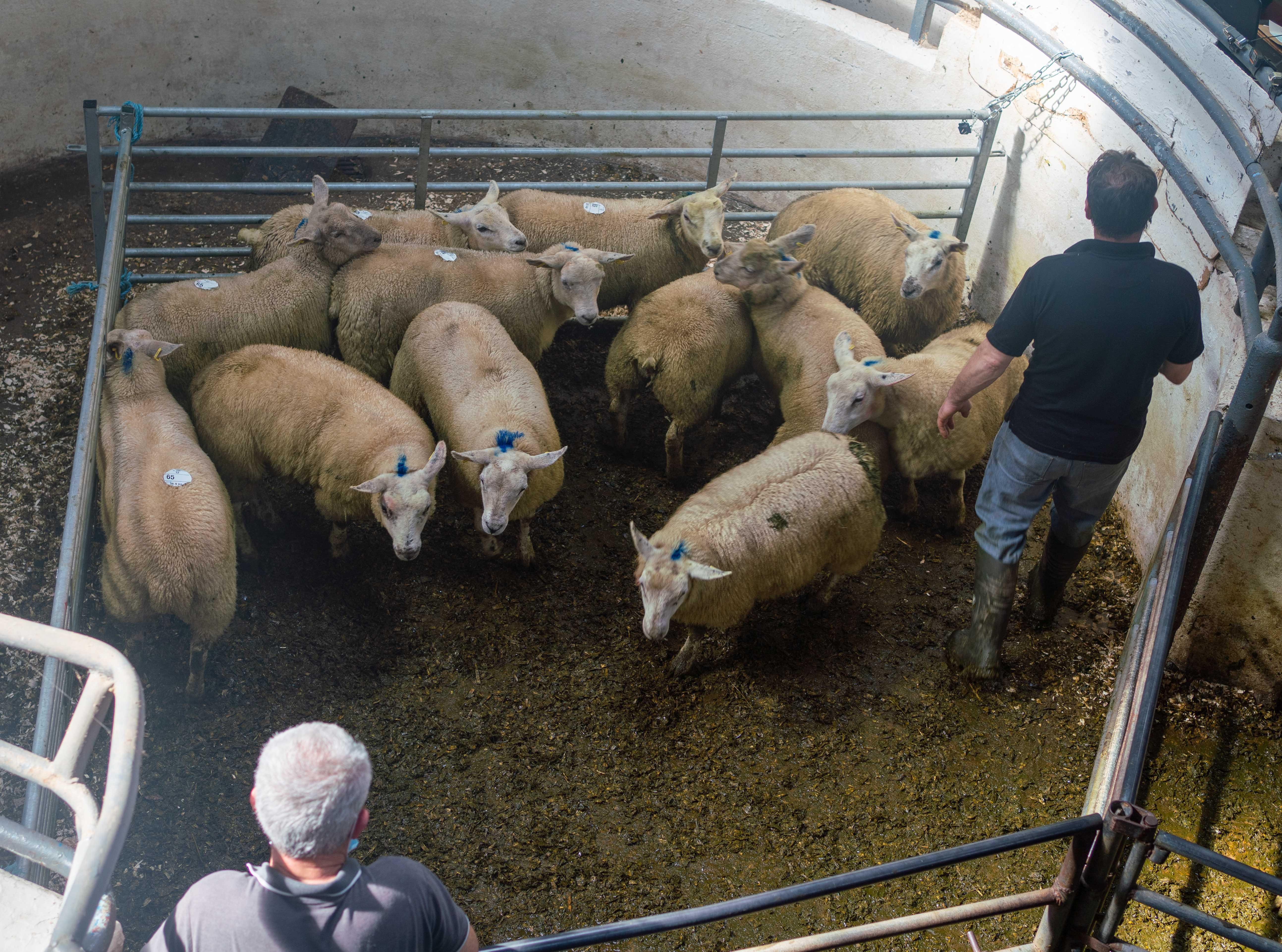
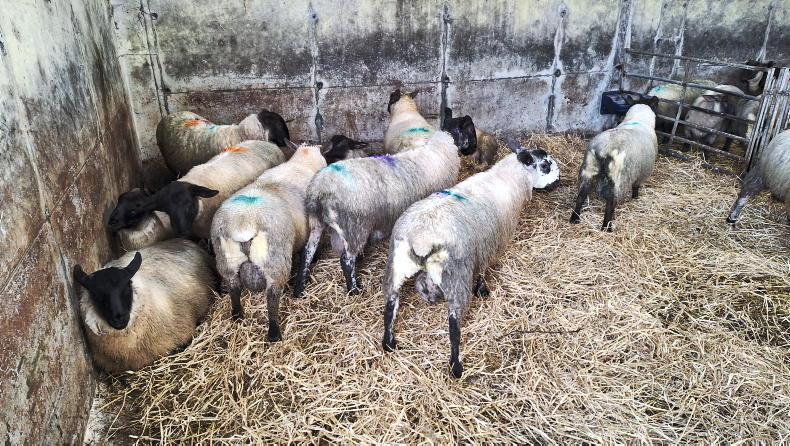

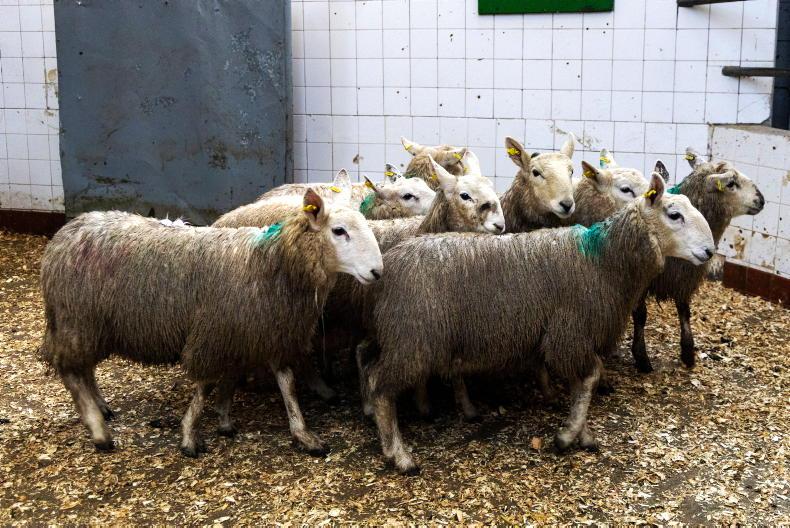
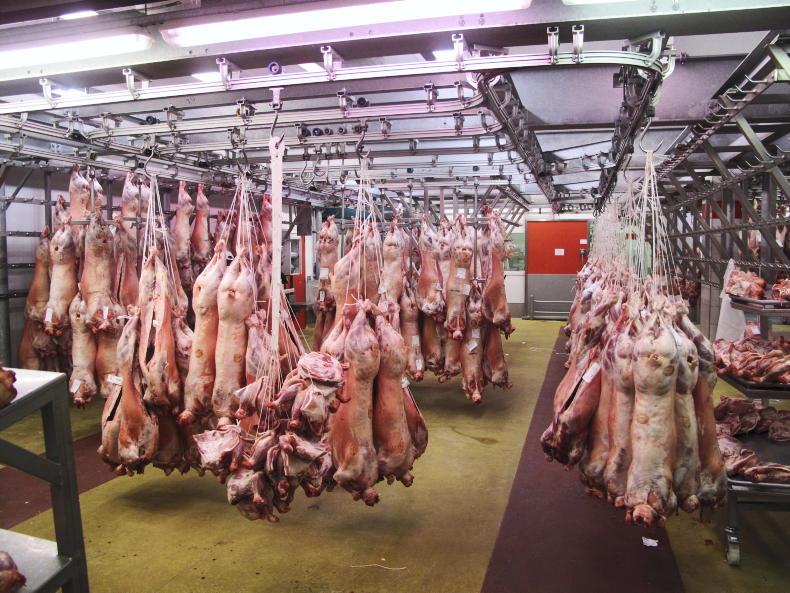
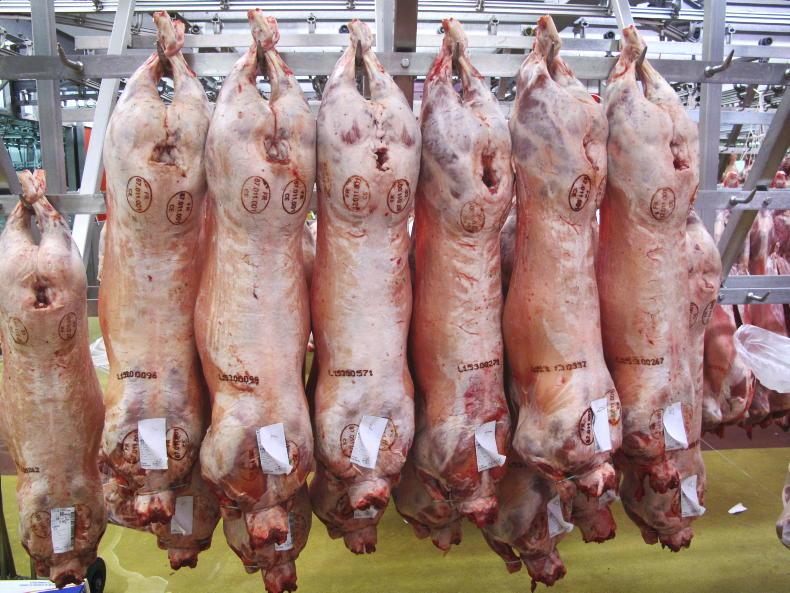
SHARING OPTIONS